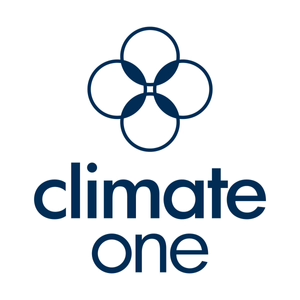
S1/Ep. 3 Jessica Luo: machine learning, zooplankton & climate model development
09/10/20 • 48 min
1 Listener
The guest of this episode is Jessica Luo, a research oceanographer at Geophysical Fluid Dynamics Laboratory (GDFL) in Princeton, NJ. Jessica and I talked about the very important role of ocean biogeochemistry in mediating carbon fluxes from the atmosphere, focusing on her most research paper on data driven modelling of gelatinous zooplankton. At GFDL Jessica is working in implementing ocean biogeochemistry in their earth system model and in this episode she tells us why it is important to know all these fine details to better predict climate change. Visit Jessica’s website for more information on her research https://www.gfdl.noaa.gov/jessica-luos-homepage/.
The guest of this episode is Jessica Luo, a research oceanographer at Geophysical Fluid Dynamics Laboratory (GDFL) in Princeton, NJ. Jessica and I talked about the very important role of ocean biogeochemistry in mediating carbon fluxes from the atmosphere, focusing on her most research paper on data driven modelling of gelatinous zooplankton. At GFDL Jessica is working in implementing ocean biogeochemistry in their earth system model and in this episode she tells us why it is important to know all these fine details to better predict climate change. Visit Jessica’s website for more information on her research https://www.gfdl.noaa.gov/jessica-luos-homepage/.
Previous Episode

S1/Ep. 2 Kaustubh Thirumalai: Methane in paleoclimate and future climate change
The guest of this episode is Kaustubh Thirumalai, an assistant professor at the University of Arizona. We talked about him growing up and studying in India, and changing his path from chemical engineering to climate. We also talked a lot about networking in academia. The paper we discussed is about how sources of methane in the atmosphere from paleo records are related to orbital variability, and the implications for modern climate change. Learning all the things we need to take into account when analyzing paleo records was eye- opening.... And his spectral analysis of long paleo records is absolutely interesting and potentially applicable to other fields... so listen on! You can find more info on Kau’s website https://thirumalai.geo.arizona.edu/.
Next Episode

S1/Ep. 4 Yemi Adebiyi: dust in observations and global climate models, diversity and inclusion
In this episode, I am joined by Yemi Adebiyi who is a postdoc at UCLA and will be starting a faculty position at UC-Merced in 2021. Yemi studies the impact of clouds and aerosols in climate. During our conversation we talked about his recent paper on underestimation of large dust particles in climate models and implications. Yemi also leads two important outreach activities, both aimed at increasing diversity and inclusion of people of color in academia and science. We had a very eye-opening exchange on the latter and more broadly on inclusion in academia, drawing some parallels between different kind of minorities. You can find more about Yemi's activities on his website: https://sites.google.com/view/aadebiyi/
If you like this episode you’ll love
Episode Comments
Generate a badge
Get a badge for your website that links back to this episode
<a href="https://goodpods.com/podcasts/the-climate-academy-145217/s1ep-3-jessica-luo-machine-learning-zooplankton-and-climate-model-deve-7096718"> <img src="https://storage.googleapis.com/goodpods-images-bucket/badges/generic-badge-1.svg" alt="listen to s1/ep. 3 jessica luo: machine learning, zooplankton & climate model development on goodpods" style="width: 225px" /> </a>
Copy




